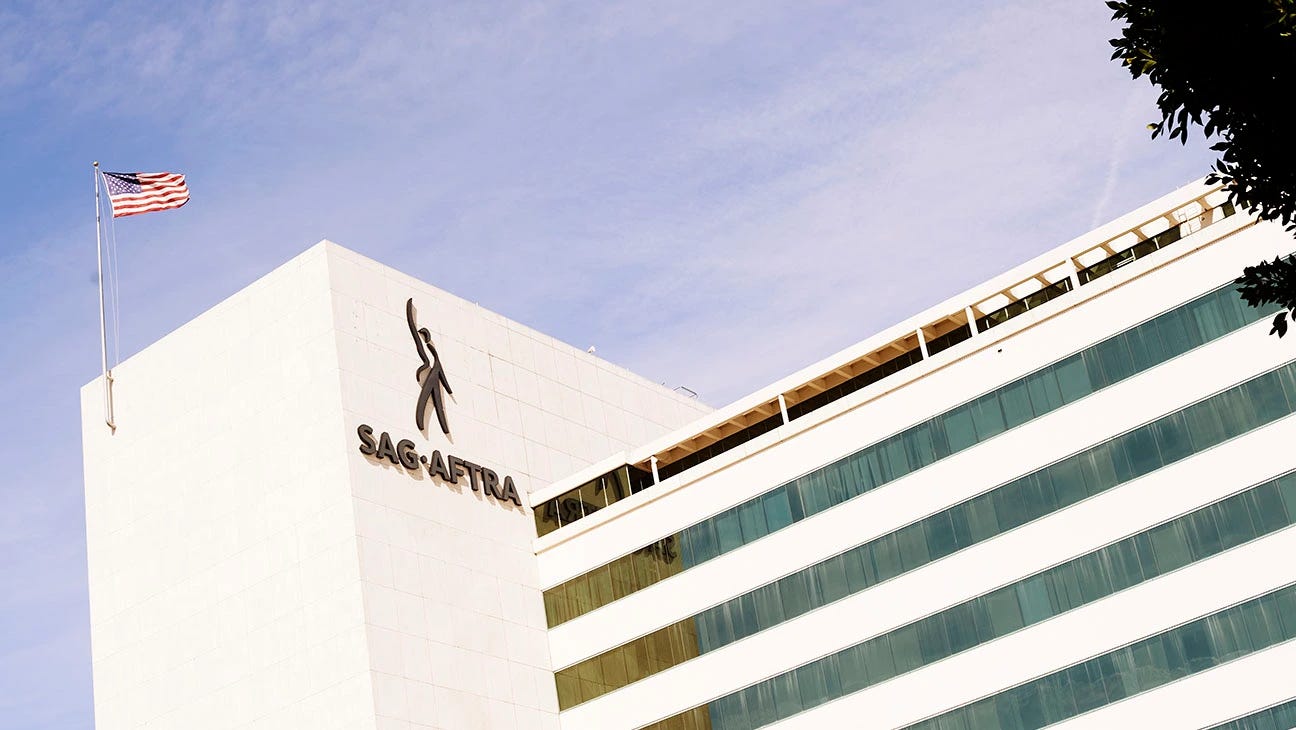The Alliance of Motion Picture and Television Producers (AMPTP) have just released a statement announcing they have suspended talks with SAG-AFTRA, after the trade organization for the major Hollywood studios says it reached an impasse with striking actors.
Multiple sources have told me the talks were suspended on Wednesday after several studio executives declined to respond to the latest SAG-AFTRA counter-offer and walked out of negotiations, declaring talks finished for the week.
These sources told me several major hurdles still remained in the talks. The issue of a viewership bonus is a primary issue, with both the size and the method it would be determined said to be a “line in the sand” for the studios. There are also apparently continued disagreements over the AI issue, in part revolving around what would be considered digital replica use that would considered enough to change the “nature” of a performance.
Sources from both sides have told me the mood is “angry” and “frustrated,” which doesn’t bode well for the hopes of a quick return to talks.
Here is the full statement released by AMPTP. A statement is also expected soon from SAG-AFTRA:
Negotiations between the AMPTP and SAG-AFTRA have been suspended after SAG-AFTRA presented its most recent proposal on October 11. After meaningful conversations, it is clear that the gap between the AMPTP and SAG-AFTRA is too great, and conversations are no longer moving us in a productive direction.
SAG-AFTRA’s current offer included what it characterized as a viewership bonus that, by itself, would cost more than $800 million per year – which would create an untenable economic burden. SAG-AFTRA presented few, if any, moves on the numerous remaining open items.
Member company executives and AMPTP representatives met with SAG-AFTRA for five days over the past eight workdays. During that time period, AMPTP extended offers including:
A first-of-its-kind success-based residual for High-Budget SVOD productions.
The highest percentage increase in minimums in 35 years, which would generate an additional $717 million in wages and $177 million in contributions to the Pension and Health Plans during the contract term.
A 58% increase in salaries for major role (guest star) performers wages on High Budget SVOD Programs.
A 76% increase in High Budget SVOD foreign residuals for the four largest streaming services.
Substantial increases in pension and health contribution caps, ranging from 22-33%, which will make it easier for performers to qualify for additional periods of health coverage and earn years of service toward a pension.
Meeting nearly all of the Union’s demands on casting, including guardrails around self-tapes, options for virtual and in-person auditions, and accommodations to performers with disabilities.
Compensation adjustments of 25% for singers who dance and dancers who sing on camera in the same session, whether in rehearsal or photography, representing a 30% increase over current wages.
Wage increases for stunt coordinators of 10% in the first year and outsized increases in years two and three, and giving television stunt coordinators fixed residuals for the first time ever.
Substantial improvements in relocation allowance – a 200% increase if the performer is on an overnight location for 6 months. The relocation allowance would now be payable for every season in which the performer is on an overnight location (versus a current limit of two to four seasons).
Substantial increases in Schedule F money breaks of between 11% and 41%. The 41% increase applies to one-hour television programs, which covers the largest number of productions done under the Agreement.
A 25% increase in span money breaks.
Covering performance capture work under the Agreement, which the Union has sought for 20 years.
On AI protections:
Advance consent from the performer and background actor to create and use Digital Replicas;
No Digital Replica of the performer can be used without the performer’s written consent and description of the intended use in the film;
Prohibition of later use of that Replica, unless performer specifically consents to that new use and is paid for it; and,
A “Digital Alteration” that would change the nature of an actor’s performance in a role is not permitted without informing the performer of the intended alteration and securing the performer’s consent.
On common issues, such as general wage increases, High-Budget SVOD residuals, and viewership bonuses, the AMPTP offered the same terms that were ratified by the DGA and WGA. Yet SAG-AFTRA rejected these.
We hope that SAG-AFTRA will reconsider and return to productive negotiations soon.
It’s worth noting that this is similar to the approach taken during negotiations with WGA. The studios halted negotiations and released the outlines of their so-called “final offer.”



